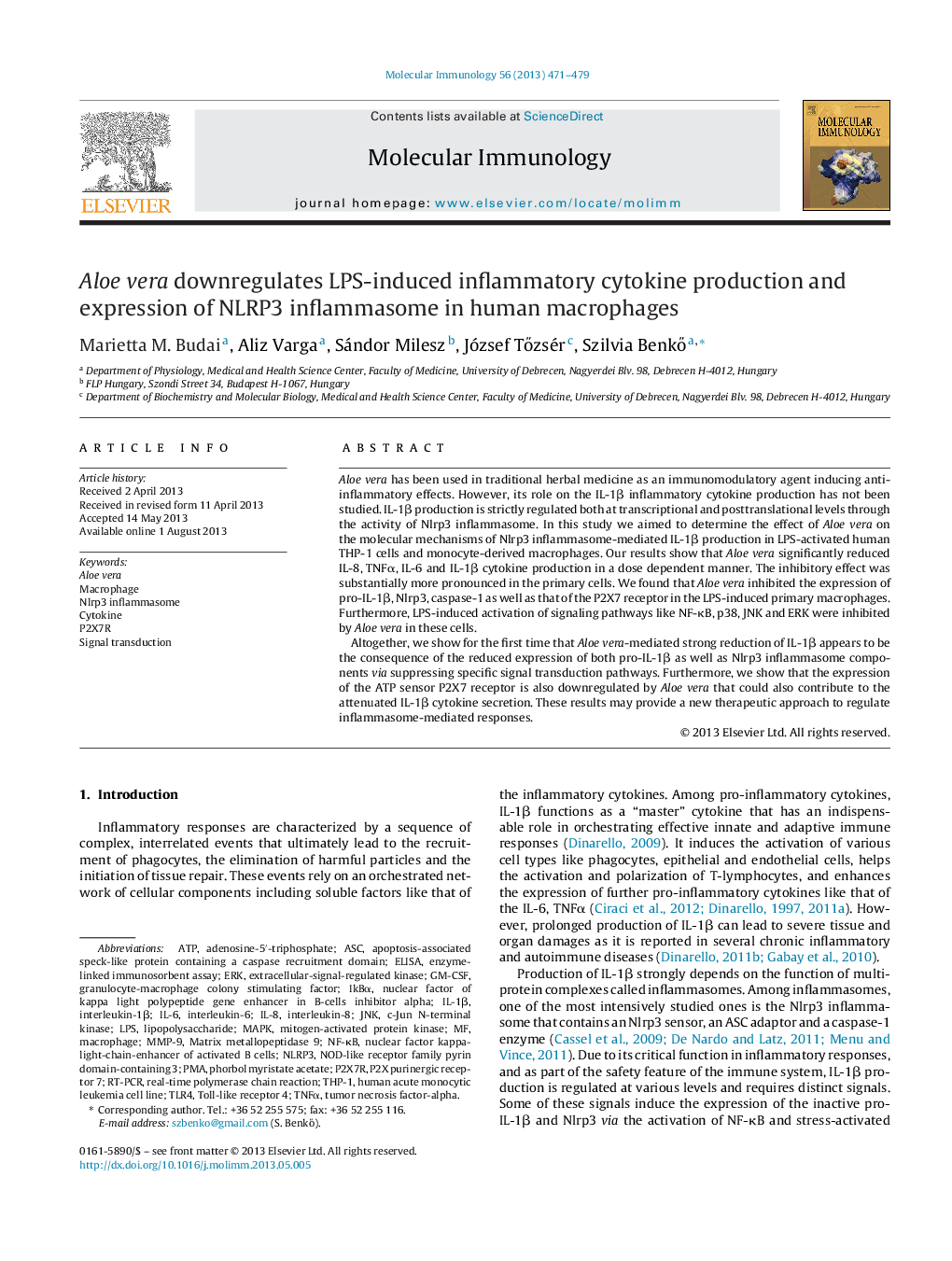| Article ID | Journal | Published Year | Pages | File Type |
|---|---|---|---|---|
| 5916941 | Molecular Immunology | 2013 | 9 Pages |
Abstract
Altogether, we show for the first time that Aloe vera-mediated strong reduction of IL-1β appears to be the consequence of the reduced expression of both pro-IL-1β as well as Nlrp3 inflammasome components via suppressing specific signal transduction pathways. Furthermore, we show that the expression of the ATP sensor P2X7 receptor is also downregulated by Aloe vera that could also contribute to the attenuated IL-1β cytokine secretion. These results may provide a new therapeutic approach to regulate inflammasome-mediated responses.
Keywords
Human acute monocytic leukemia cell lineIL-1βNF-κBERKMMP-9RT-PCRASCTHP-1GM-CSFJnkP2X7RTLR4IL-6LPSIL-8TNFαNLRP3granulocyte-macrophage colony stimulating factorIkBαc-Jun N-terminal kinasePMAMAPKadenosine-5′-triphosphateATPAloe veraNLRP3 inflammasomeInterleukin-8interleukin-6Interleukin-1βELISAEnzyme-linked immunosorbent assaytumor necrosis factor-alphaCytokinenuclear factor kappa-light-chain-enhancer of activated B cellsnuclear factor of kappa light polypeptide gene enhancer in B-cells inhibitor alphaphorbol myristate acetatelipopolysaccharidematrix metallopeptidase 9MacrophageSignal transductionapoptosis-associated speck-like protein containing a caspase recruitment domainreal-time polymerase chain reactionmitogen-activated protein kinaseextracellular-signal-regulated kinaseToll-like receptor 4
Related Topics
Life Sciences
Biochemistry, Genetics and Molecular Biology
Molecular Biology
Authors
Marietta M. Budai, Aliz Varga, Sándor Milesz, József TÅzsér, Szilvia BenkÅ,
